OPK Kava Extract Capsules
Introducing OPK Extract Capsules – the serene oasis in your hectic day-to-day life. These premium capsules are your ticket to tranquility, delivering the potent relaxation benefits of traditional Kava in a convenient, easy-to-consume form. Sourced from the finest Kava roots, each capsule is a testament to purity and potency, ensuring you receive the full spectrum of Kava’s soothing properties.
OPK Extract is manufactured from the same company that makes OPMS Gold! That means you are getting the HIGHEST quality, purest and most effective herbal product on the market today. These gelatin capsules contain organically purified kava (OPK). This product can offer a more restful night’s sleep, and may help reduce stress and anxiety.
“We only use high quality Lateral Roots for our extract, which gives us the cleanest Kava product on the market.”
– OPMS OPK Team
Supplement Facts:
- Made By OPMS
- Lab Tested
- 500mg Capsules
- Piper Methysticum Extract
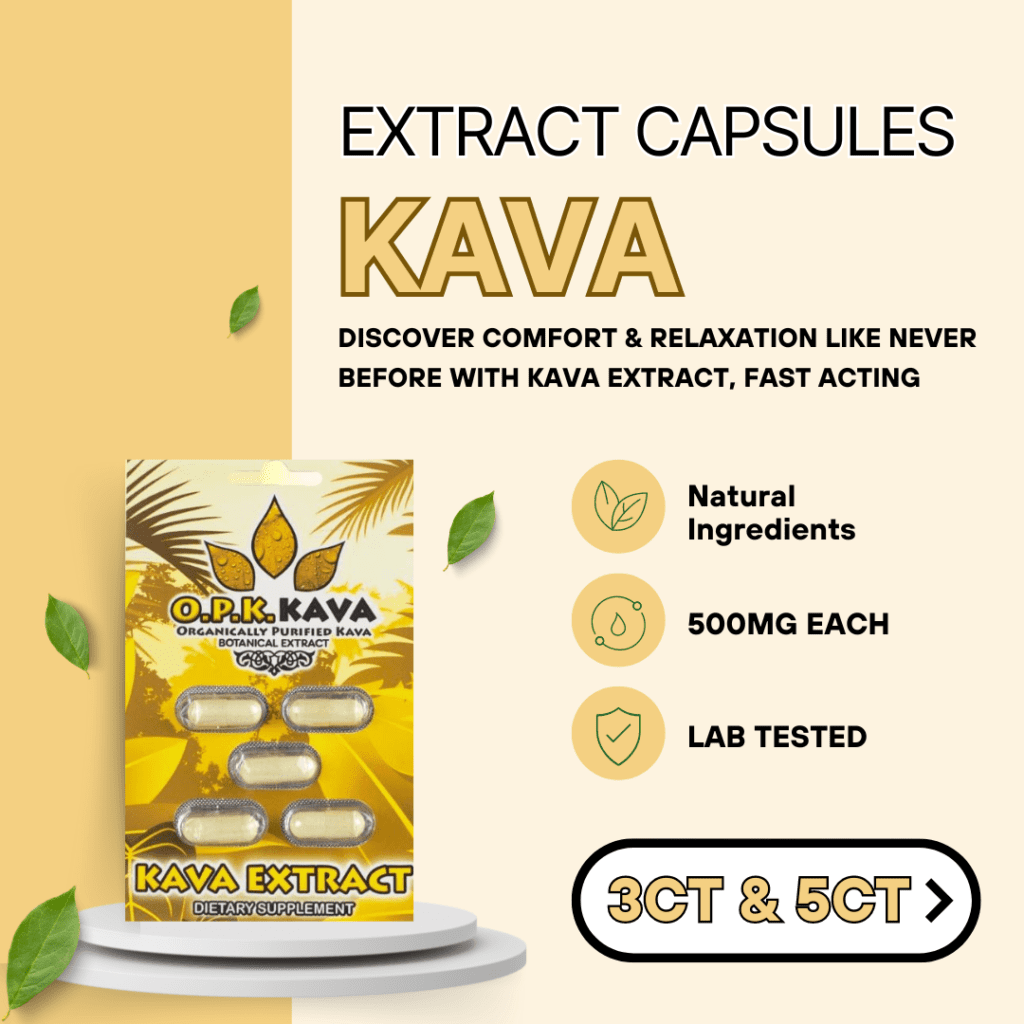
What Is Kava?
Kava is a depressant drug, which means it slows down the messages travelling between the brain and the body. Kava is made from the root or stump of the kava (Piper methysticum) shrub.
Pros of OPK Extract Capsules:
- Stress Relief Redefined: Bid farewell to stress as these capsules work to calm your nerves, promoting a state of relaxation without compromising your mental clarity.
- Convenience at Its Best: Forget the hassle of preparation. OPK Extract Capsules offer the benefits of Kava in a no-fuss, easy-to-carry format, perfect for your busy lifestyle.
- Quality You Can Trust: Sourced from the highest quality Kava roots, each batch is rigorously tested for purity and potency, ensuring you receive nothing but the best.
- Natural Serenity: Experience the tranquil essence of Kava, known for centuries to promote peace of mind, without the risk of chemical additives or preservatives.
Cons of OPK Extract Capsules:
- Consultation Recommended: As with any supplement, it’s wise to consult with a healthcare professional, especially if you’re pregnant, nursing, or on medication.
- Individual Variability: Everyone’s chemistry is unique, so while many experience the wonderful benefits of Kava, results can vary.
Try The New Buzz: Kava Extract Capsules
In the whirlwind of today’s world, finding a moment of calm can be transformative. OPK Kava Extracts are not just a supplement; they’re your personal pause button, your daily ritual to tranquility. Why wait for peace of mind when it’s just a capsule away?
Embrace the calm. Transform your day. Try OPK Kava Extract Capsules now.
FAQs
What are the effects of Kava?
How long does it take for Kava extract to work?
Can Kava extract capsules be taken daily?
Is Kava extract suitable for everyone?

Related Products:

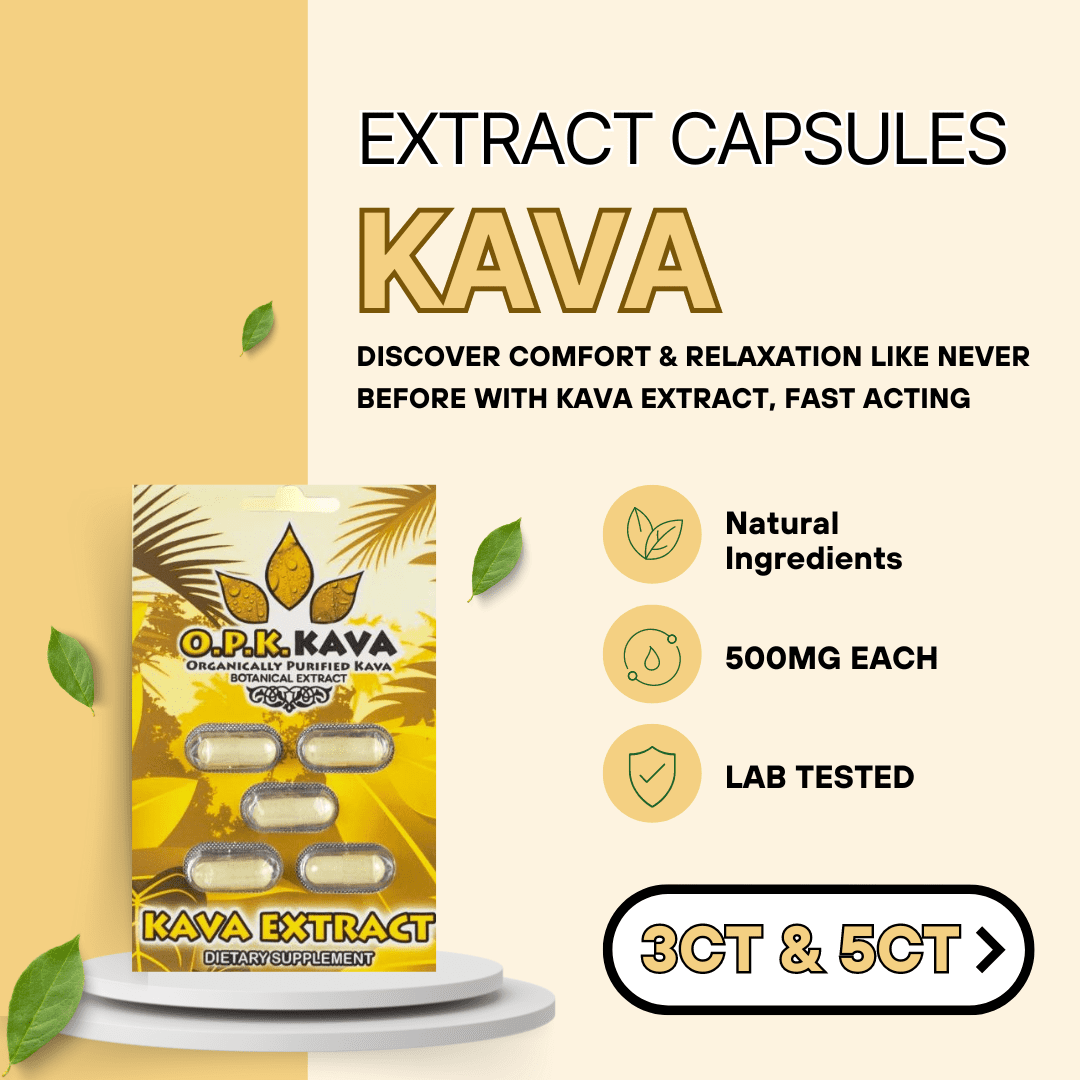
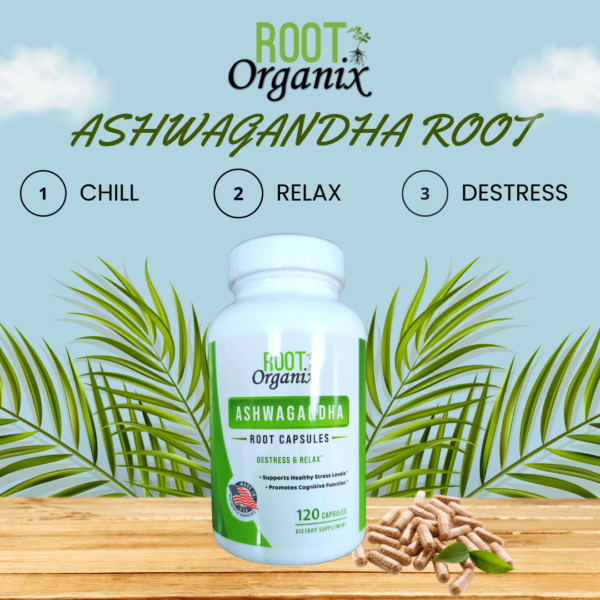
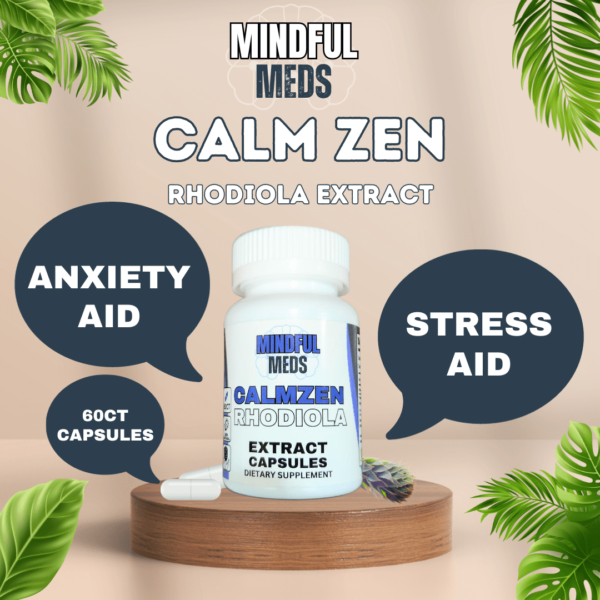
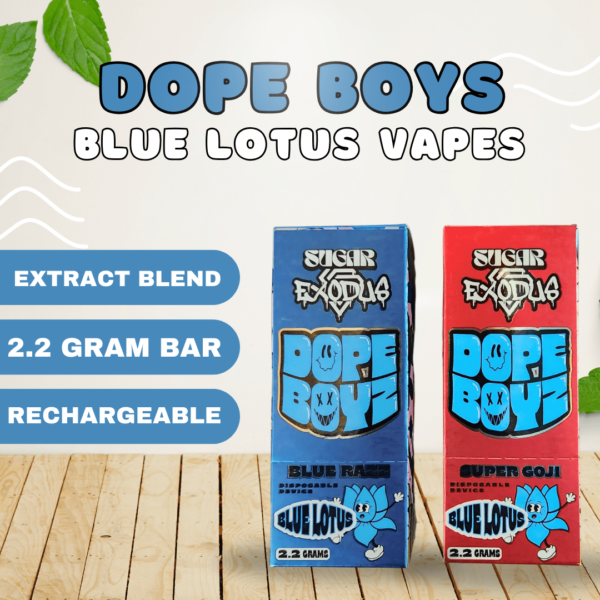
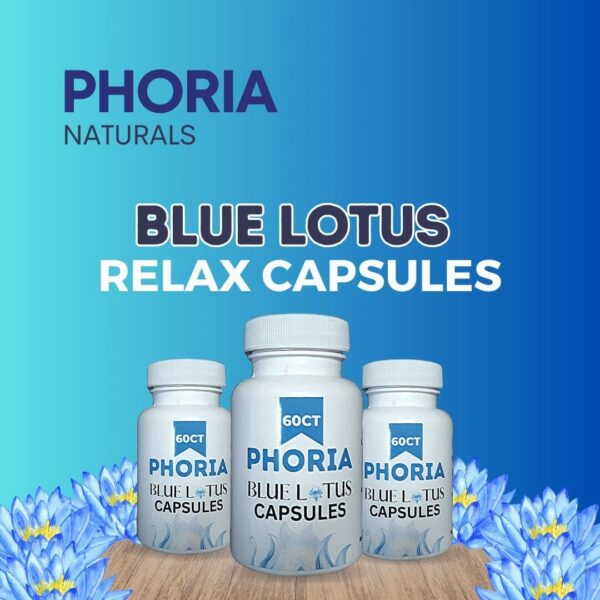
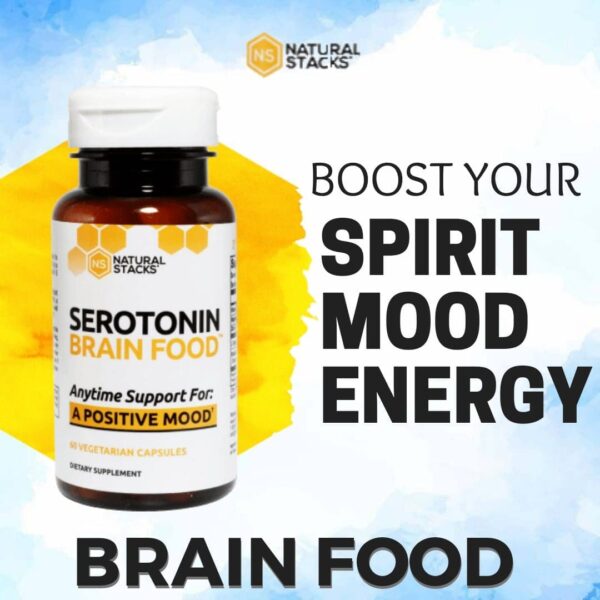
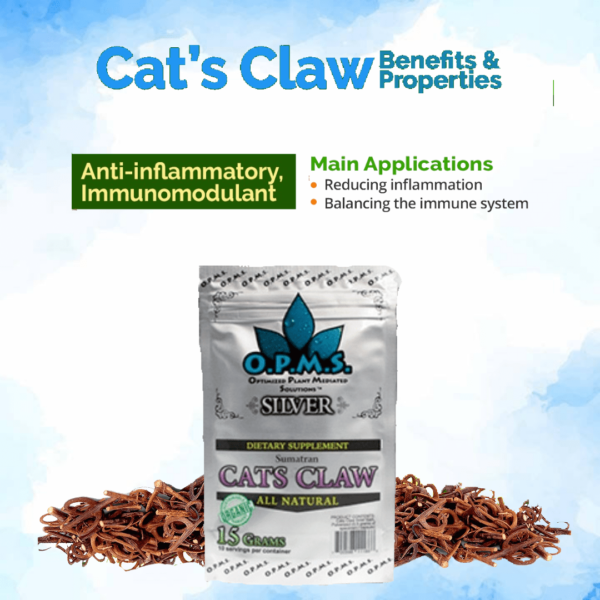
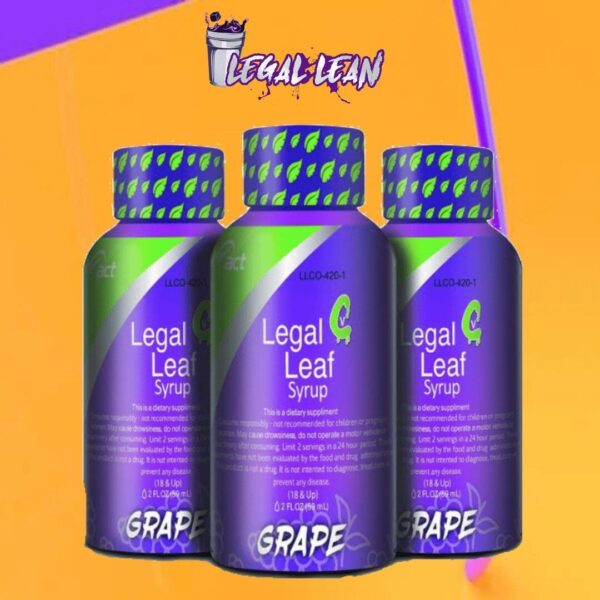
Charlie P. –
great kava extract, didn’t know they made them in extract but one capsule chilled me out the whole day def worth it.
Eva –
very relaxing kava extract, I just need 2 capsules and i’m good for the night.